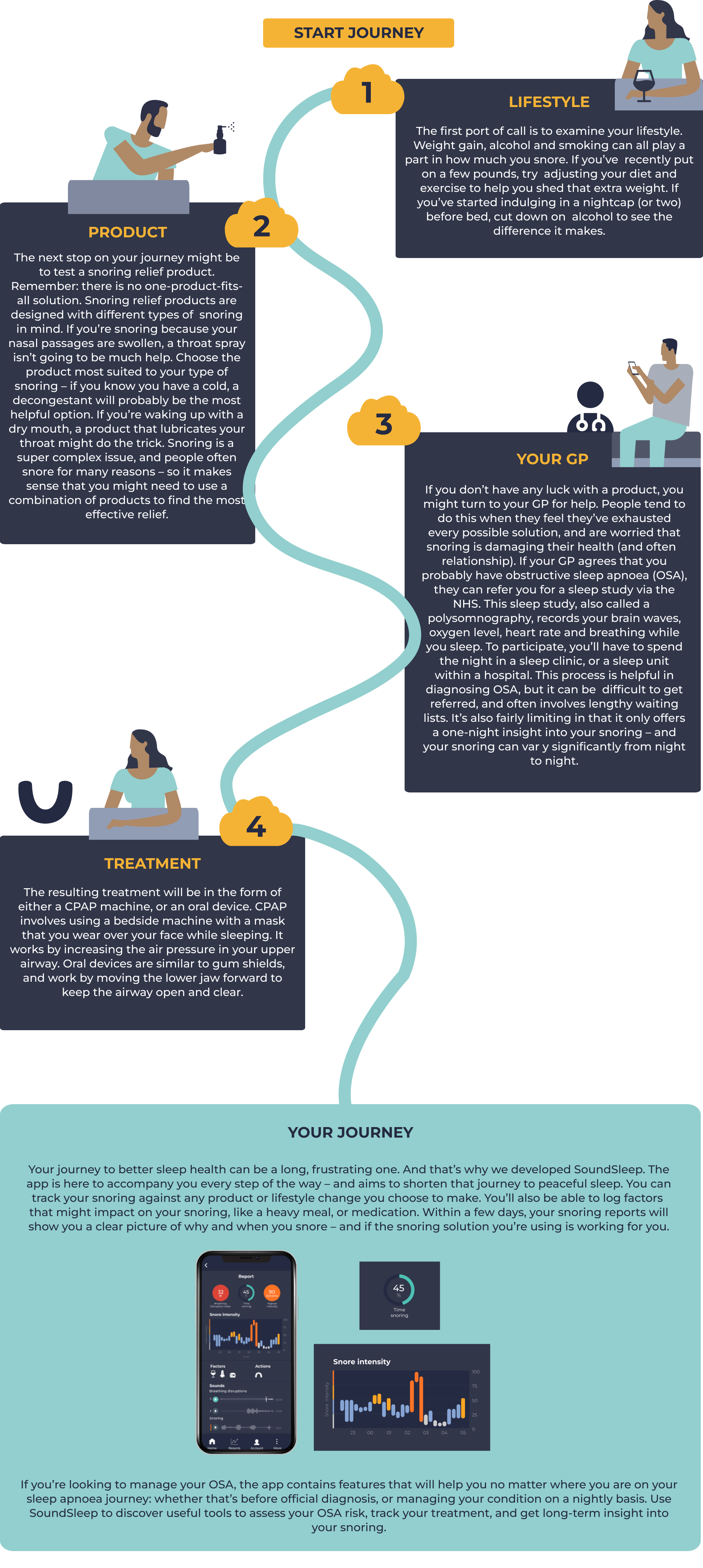


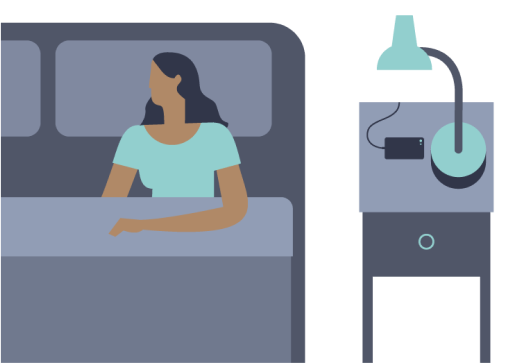






What’s happening to my body?
So you know (or you’ve been told) that you snore. But what’s physically going on in your body to cause snoring? Let’s break it down.
To put it simply, snoring is a sign that there’s an obstruction in your airway.
The size of the obstruction affects how severe – or serious – your snoring is.
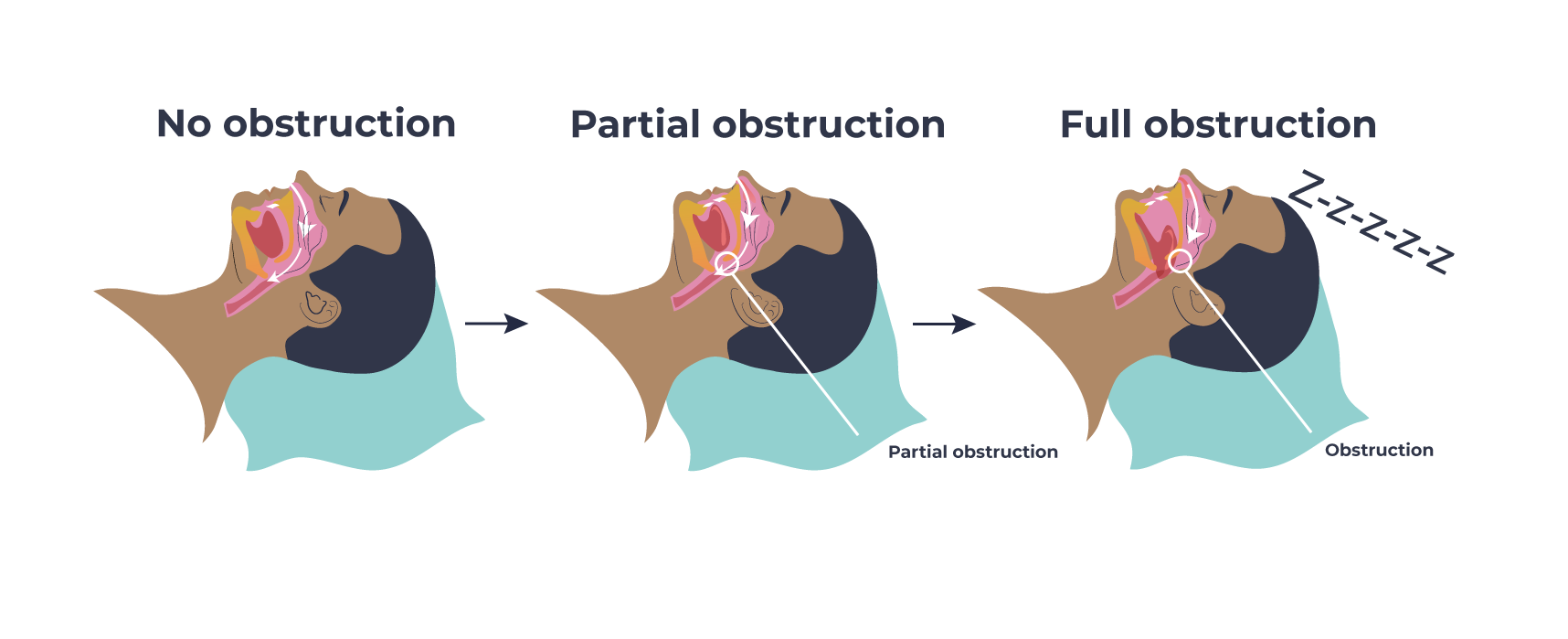
If your airway narrows, the air you breathe is pulled through it faster. This causes the soft tissue at the back of your throat to dehydrate and vibrate. The sound this makes is what you hear as snoring.
When you sleep, your muscles relax, including the ones in your throat. Sometimes, this relaxation can cause your airway to narrow, making it difficult for you to breathe properly.
SHOULD I BE WORRIED ABOUT MY SNORING?
Snoring itself is often harmless – just an annoying habit that many couples put up with. But while it might not be affecting your health, it could be doing a fair bit of damage to your partner; a snoring spouse can raise a sleeper’s blood pressure by as much as a low-flying aircraft or a lorry reversing in the street. High blood pressure increases the chances of stroke, heart disease and dementia.
The effects of long-term sleep deprivation aren’t pretty either. If you’re routinely keeping your partner awake, they become at risk of:

Memory issues
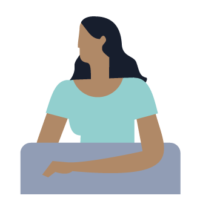
Mood changes
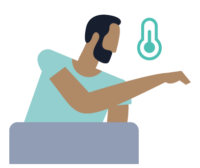
Weakened immune system

Poor thinking and concentration
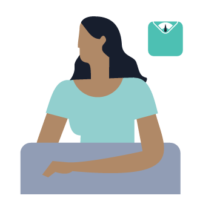
Weight gain

Chronic illness, like diabetes and heart disease
Now let’s refocus on you. While snoring is harmless in many cases, that doesn’t mean it’s harmless in all cases. In fact, snoring can be an incredibly serious issue for a surprising number of people. It’s often the first indicator of obstructive sleep apnoea (OSA) – and up to 85% of people with this condition are undiagnosed. A whopping 100 million people worldwide are thought to suffer from varying degrees of OSA.
100 MILLION
PEOPLE WORLDWIDE THOUGHT TO HAVE OSA
AROUND 85%
OF OSA SUFFERERS ARE UNDIAGNOSED
What is obstructive sleep apnoea (OSA)?
So we know that snoring is caused by the muscles in the throat relaxing. When these muscles relax, your airway narrows, and it becomes harder for you to breathe. The air being pulled through your airway travels faster, and this causes the soft tissue at the back of your throat to dehydrate and vibrate. You hear this sound as snoring.
Sometimes, the airway can relax so much that it completely closes up. The walls of your airway stick together for around 10-30 seconds at a time, but this can happen for longer. When the airway finally opens up again, you might make a loud, violent snoring sound. This is called an apnoea.
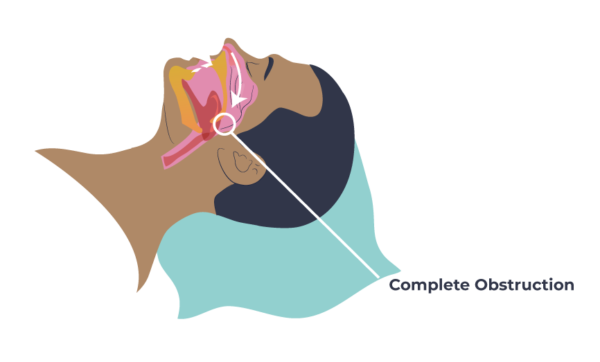
Throughout the night, your body will keep coming out of deep sleep to try and help you breathe properly. Doctors call this an ‘arousal’; you probably won’t be aware of it happening, but it’s what causes you to feel so sleepy the next day.
Having OSA means that you’re getting less oxygen circulating in your blood than your body needs. If you leave OSA untreated, it can raise your risk of heart disease, stroke and diabetes.
HOW DO I KNOW IF I SNORE?
If you share a bed with your partner, chances are you’ve probably already heard a lot about your snoring (most likely in great detail the following morning). But if you’re sleeping alone, it can be tricky to tell whether you are a snorer – and just how bad it is.
That’s where SoundSleep comes in. The app records and tracks your snoring throughout the night, meaning you can listen back to some of your snores when you wake up. You’ll be able to see how often you snored, and just how loud it got. There are plenty of other ways to figure out if you’ve been snoring too. The most common signs are:

How Do I Stop Snoring?
You might not want to hear this – but when it comes to snoring, there isn’t always a quick fix. Snoring is a complex issue, and it can take a lot of trial and error with different methods to figure out what works best for you.
Think of your snoring as a journey. There isn’t a quick way of getting to the finish line – there will probably be lots of pit-stops along the way.
